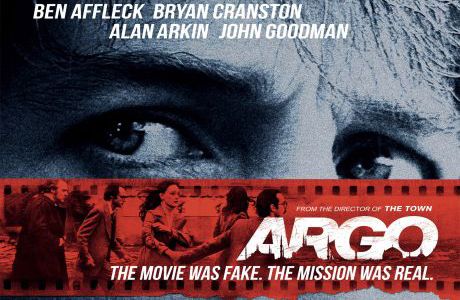Arts
You are here
Argo: a good film with bad timing

October 22, 2012
On November 4, 1979, amid the Iranian Revolution which overthrew that country’s US-backed absolute monarchy, a group of armed Islamist students stormed the American embassy in Tehran. They took its staff hostage, holding them prisoner for 444 days, in one of the most humiliating cases of blowback faced by the US before 9/11. On the day of the attack, however, six members of the staff working in a separate building on the embassy compound managed to slip out unnoticed, ultimately hiding out in the Canadian ambassador’s residence. Argo tells the story of the CIA operation to smuggle these six diplomats out of Iran.
Coming out at a time when Israel is openly threatening to bomb Iran, the Harper government has ramped up its campaign of fear-mongering by severing diplomatic relations, and a hard-right Republican ticket is trying to use the attack on the American consulate in Libya to propel itself into the White House, the film can’t help but seem a little convenient. And indeed, it will have millions of viewers flocking to theatres to hear the story of how innocent Americans were victimized by the menacing Iranians and the CIA came in to save the day.
But with that disclaimer aside, it’s worth acknowledging that Argo consciously tries to avoid being nauseatingly pro-American. The opening sequence outlines the history of American imperialism which preceded the revolution and hostage-taking—including the 1953 coup against the democratically-elected Mohammed Mossadegh for daring to nationalize the country’s oil resources, and American support for the Shah and his brutal secret police, the SAVAK. The film also provides an honest depiction of American reactions to the hostage-taking, including archival footage of a brutal assault by American protestors against an Iranian-American.
Taken solely on its artistic merits, it is an enjoyable movie. The cloak-and-dagger CIA operation makes for an exciting thriller, and the diplomats’ cover story as scouts for a fake science fiction movie called Argo leads to some funny scenes set in Hollywood. Ben Affleck, John Goodman and Alan Arkin all turn in convincing performances as the CIA “exfiltration expert” and movie industry big wigs, respectively.
On the whole, the movie’s entertainment value and attempt at objectivity make it easy enough to recommend, and in a different political context one could leave it at that. But with the prospect of another US-led war of aggression hanging over Iran and its constant demonization in the Western media, it behooves us to think more critically about the way this movie plays into the dominant narrative and the hands of those promoting it.
Section:
Topics:
- Log in to post comments









